Paddles on the Namekagon is a summer arts project held at Schaefer Cabin for the youth of Northwest Passage. The goal of this project was to connect kids with the ecology, history, and novelty of the Namekagon River through exploration and art. Each paddle design, as unique as the young artist who created it, is geometric, non-representational art in the color palette of the Namekagon River, using patterns that are reminiscent of the voyageur and fur trade era.
WEEK 1: SCHAEFER CABIN EXPLORATION
The students visited Schaefer Cabin for the first time. They explored the natural beauty surrounding the cabin and walked the hiking paths that lead to the Namekagon River, where they took time for a moment of mindfulness and wrote in their journals. They were introduced to the Paddles on the Namekagon summer art project that would include taking pictures while canoeing down the river and designing and painting their own unique paddles.
WEEKS 2&3: CANOE & PHOTOGRAPHY TRAINING
The students spent the next two weeks practicing their canoeing skills. They learned how to steer the canoes with paddles and how to unload and load the canoes as a team. They practiced communicating with one another while on the water and were able to relax and enjoy the fresh water while they swam. During these weeks, the kids also learned how to use an underwater camera, which would be an important skill in the coming weeks. They developed confidence and newfound skills while they enjoyed exploring Wisconsin’s Northwoods.
WEEK 4: COLOR INSPIRATION
The kids canoed down the Namekagon River for the first time and took photos of the scenery both above and below the surface. They took special notice of the small plants and bugs and took pictures of them to reveal a whole palette of colors that would go unnoticed at first glance.
WEEK 5: PADDLE PREP
Due to mid-summer heat advisories and thunderstorms, the kids stayed on campus to prepare their paddles for painting. Although they were unable to go to Schaefer Cabin, their time was still packed full of art, time outside, and moments to reflect. They learned how to sand and applied that new knowledge to their work. They sprayed the paddles with water from the Namekagon River to raise the wood grain to help the paint adhere to the paddle. After the sanding process, the students began to tape their designs on the paddles.
WEEK 6: PAINTING BEGINS
The kids returned to Schaefer Cabin excited to begin the painting process. They got some pointers on how to paint wood, which is different from painting other surfaces, then began to bring their colorful paddle designs to life. Their palette of colors was sourced from the photos they took during week 4.
WEEKS 7&8: PAINTING CONTINUES
The painting process took several weeks. During week 7, many of the kids decided to pull back the tape to reveal the work they had done so far. Some were very happy with their progress and others decided they wanted to make some changes. They discovered that the painting process, like life, involves a lot of trial and error. During week 8, the kids began to work on the final touches of their paddles and think more deeply about how they wanted to build on the designs already in progress. They put their creative skills to the test and began to adapt their designs to incorporate new inspiration. Despite some challenges, the kids had a lot of successful moments during the painting process and were beginning to visualize their final projects.
WEEK 9: PADDLE COMPLETION
By week 9, the students were getting excited to finish the projects they had been working on throughout the summer. They added the final touches to their paddles and lifted the tape off to reveal their finished designs. They felt a sense of accomplishment and expressed a lot of contentment with their finished paddles.
WEEK 10: GOODBYE TO SCHAEFER CABIN
As summer began to fade, it was time to say goodbye to Schaefer Cabin. The students cleaned up their workspaces and reflected on the summer they spent along the Namekagon River in Northern Wisconsin. They reminisced on their joyful memories at the cabin and shared stories of the moments they were challenged. They expressed their appreciation for their experiences and were excited to seal their paddles to make them water-resistant and ready for use.
Northwest Passage has witnessed the unique power art holds to serve as a mode of expression for children with severe mental health challenges and are leaders in innovatively leveraging nature as a stage for healing. They express sincere gratitude to the National Park Service, the Kohler Foundation, and the Horst Rechelbacher Foundation for their generous support of this project.

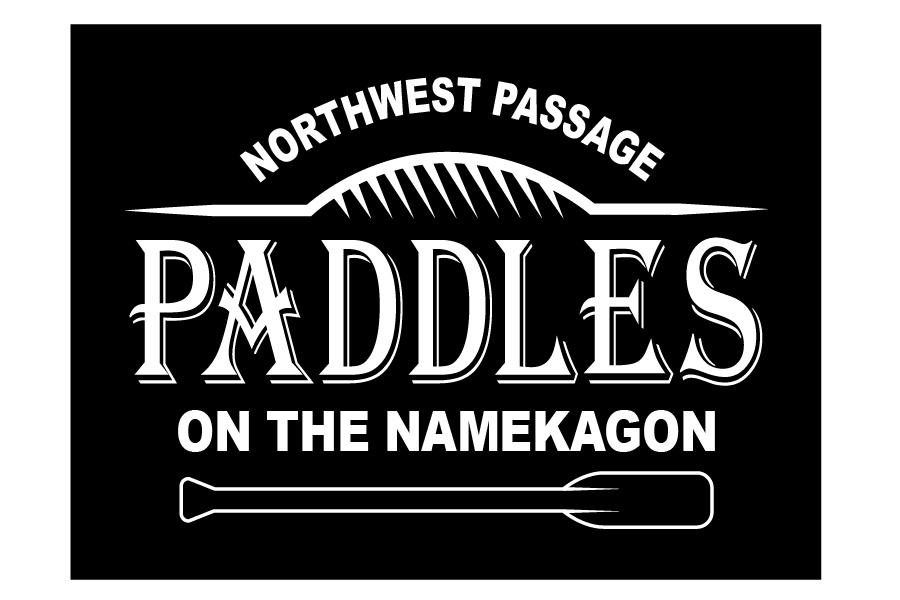
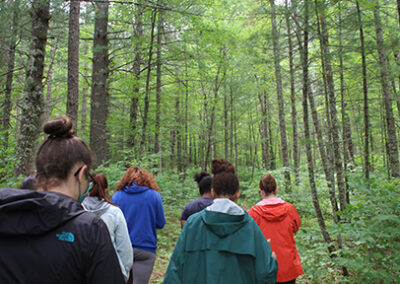
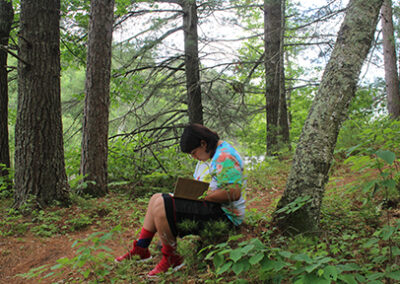
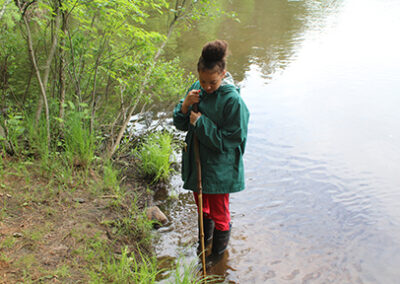
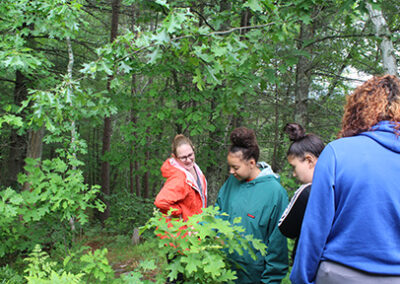
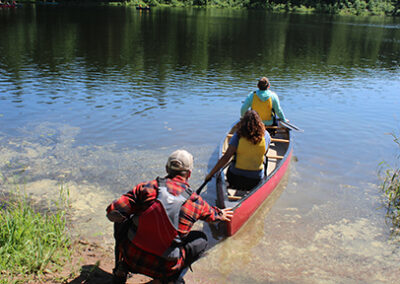

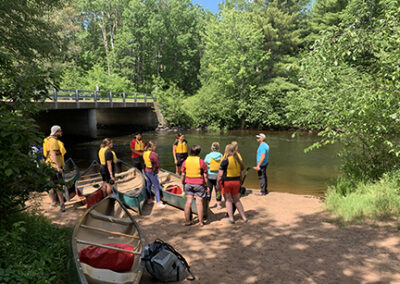
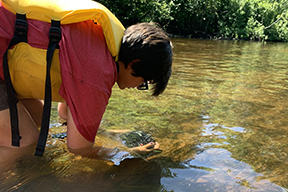
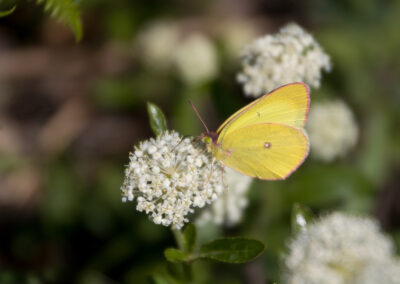
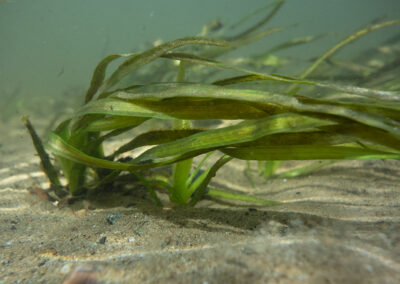
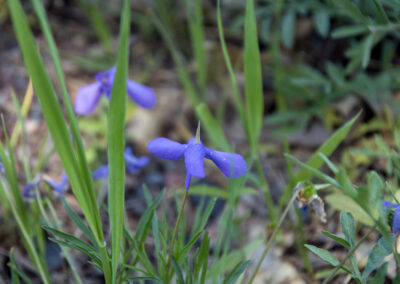
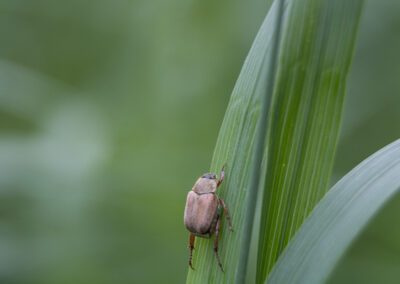
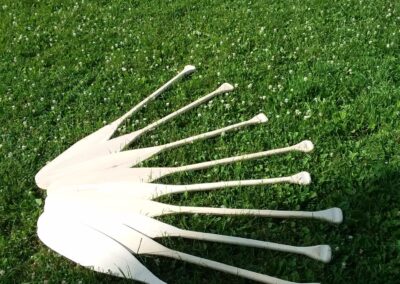
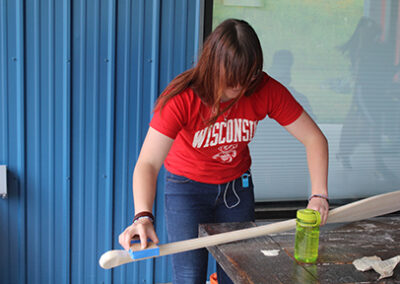
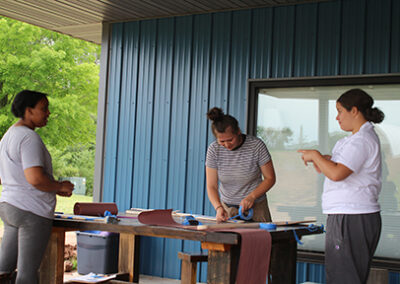
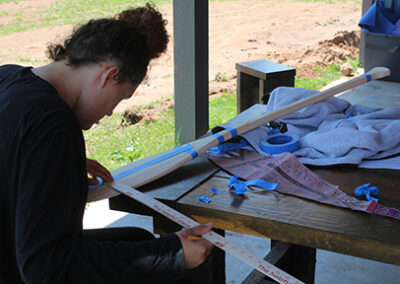
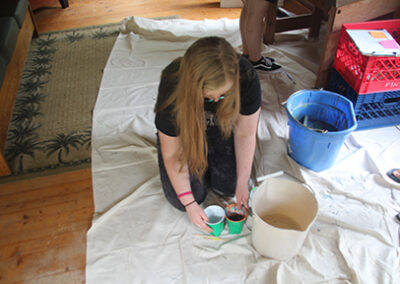
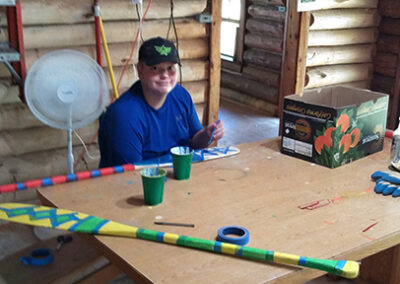
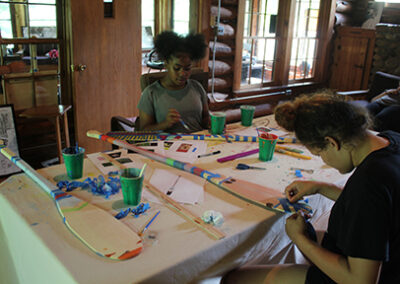
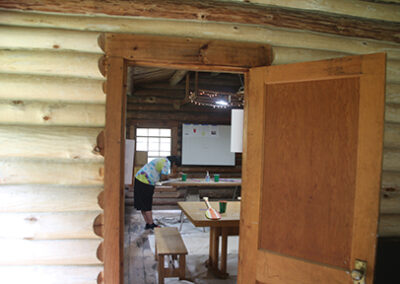
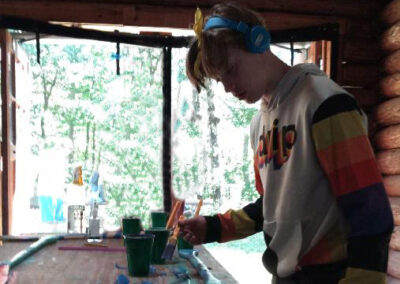
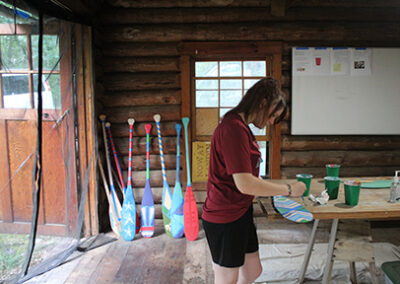
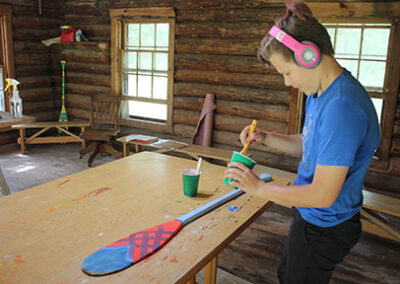
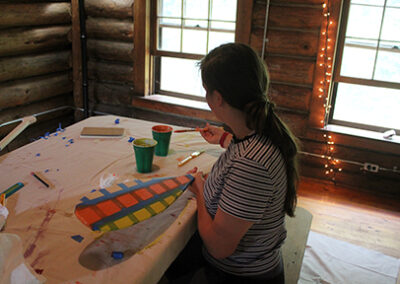
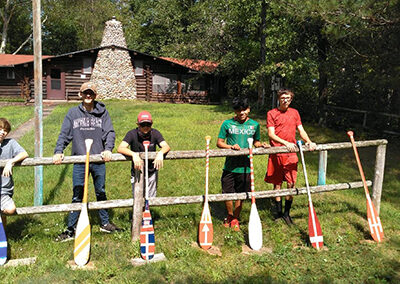
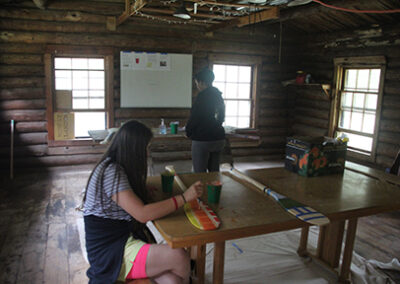
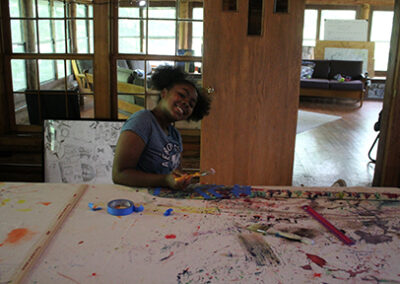
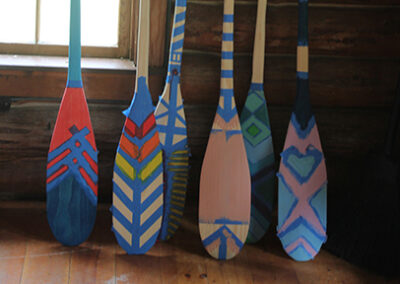
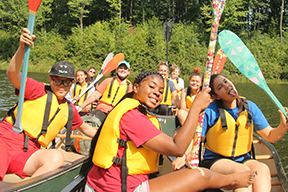
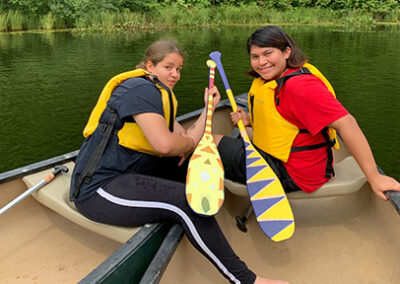
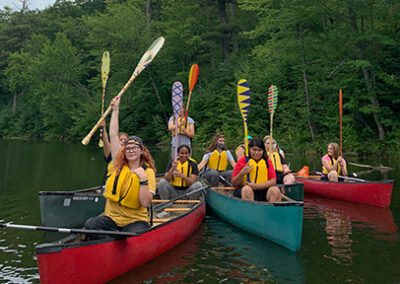
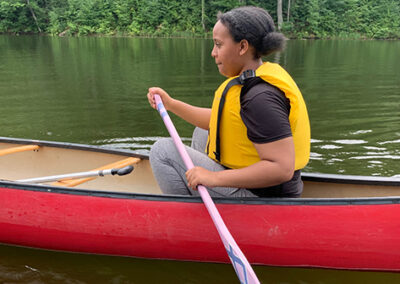
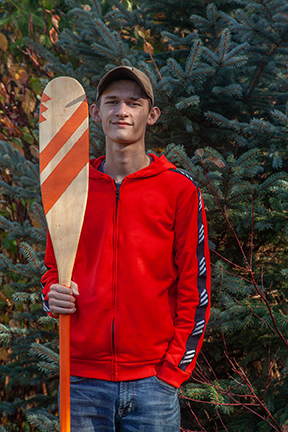
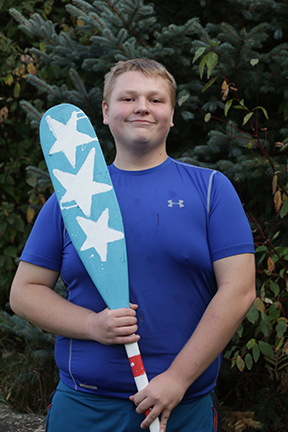
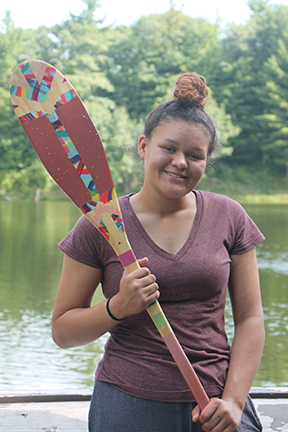
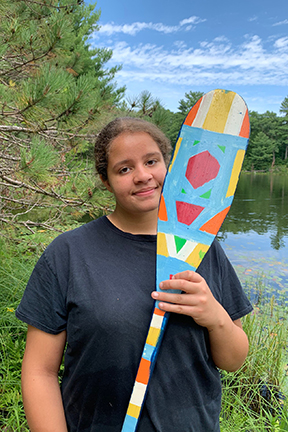
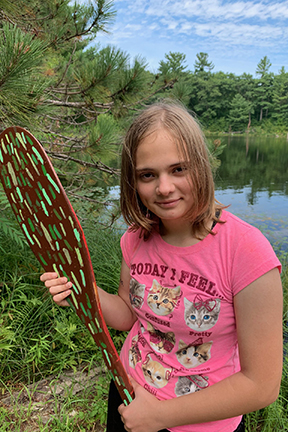


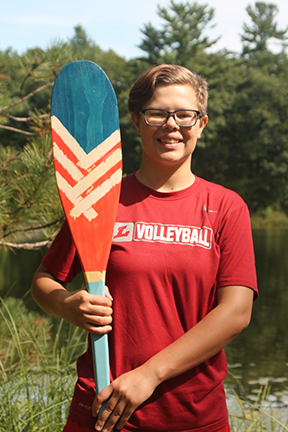
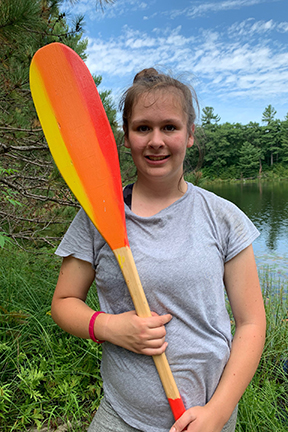
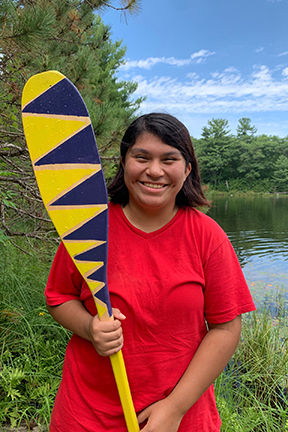

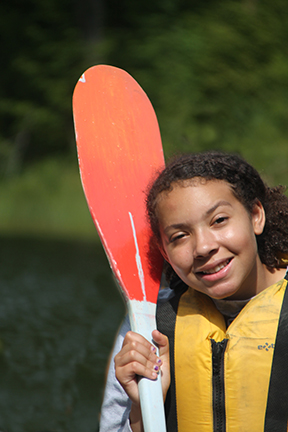

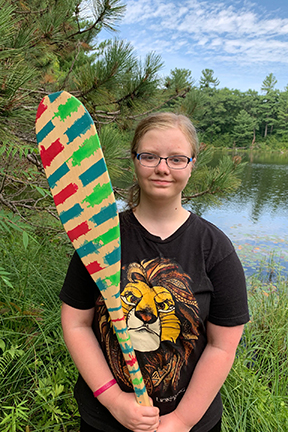

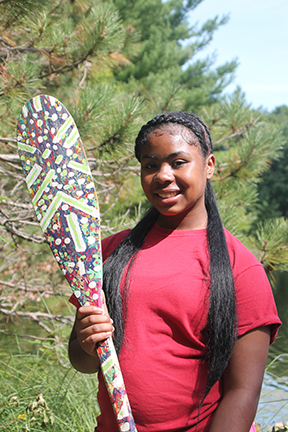
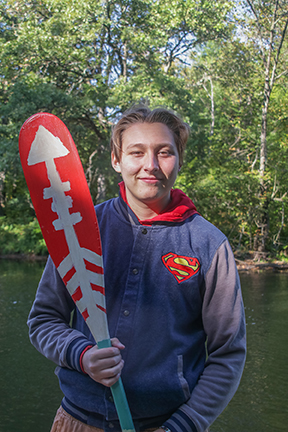
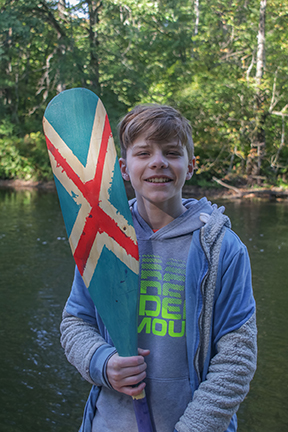
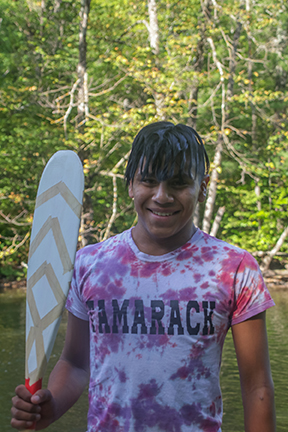
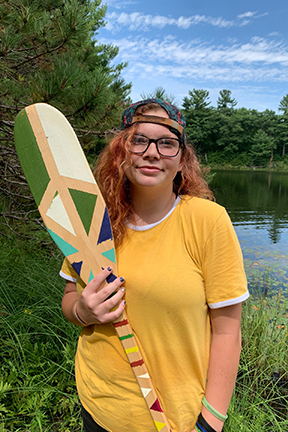
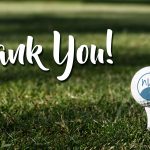
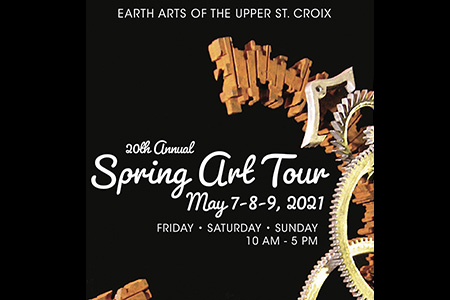
Recent Comments